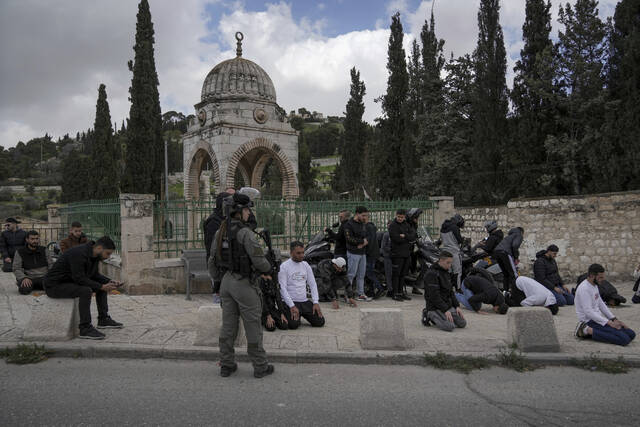JERUSALEM — On the day before Ramadan, Jerusalem’s Old City doesn't look as festive as it usually does.
Nearly half of the cave-like gift shops are closed with metal shutters. The narrow streets leading to Al-Aqsa Mosque, which is Islam’s third-holiest site, are strangely empty. The fairy lights and glowing lanterns that normally hang above quick-moving worshippers are missing.
Ramadan preparations in Jerusalem, the spiritual center of the long-standing Israeli-Palestinian conflict, have been toned down due to the ongoing Israel-Hamas war in Gaza, now in its sixth month. With over 30,000 Palestinians killed in Gaza and hundreds of thousands suffering from hunger, there's not much space for joy.
“This will be the black Ramadan,” Abu Mousam Haddad said in front of his coffee stand near Damascus Gate, one of the Old City’s main entrances.
But in the coming days, attention is expected to shift from Gaza to Al-Aqsa, which has been a frequent point of quickly escalating Israeli-Palestinian violence in the past.
Hamas, which presented its Oct. 7 attack on southern Israel as a fight for Muslim rights at Al-Aqsa, is now seeking a similar eruption in the hopes of engaging Israeli forces on new fronts and improving its position in Gaza cease-fire negotiations.
The militants have called on Palestinians across Israel and the occupied West Bank to go to the mosque during Ramadan to challenge the expected Israeli restrictions on worship and movement.
Although similar restrictions have often led to clashes in the past, it's not clear if Palestinians will risk confrontations in the current situation where Israeli forces are heavily cracking down on any perceived threats.
“There is great fear among people about what Ramadan will look like this year and how the Israeli police will behave regarding the entry and exit … into the city,” said Imad Mona, who owns a bookshop outside the Old City.



